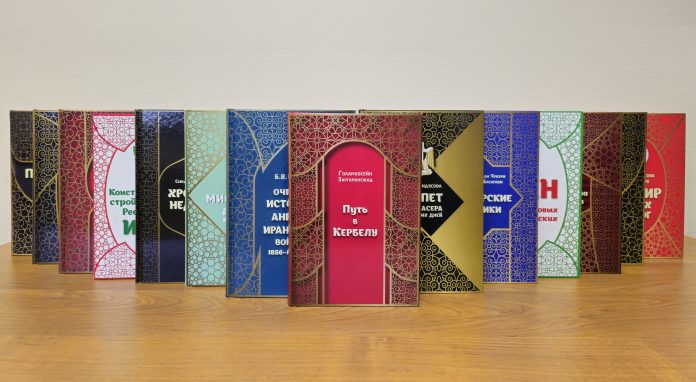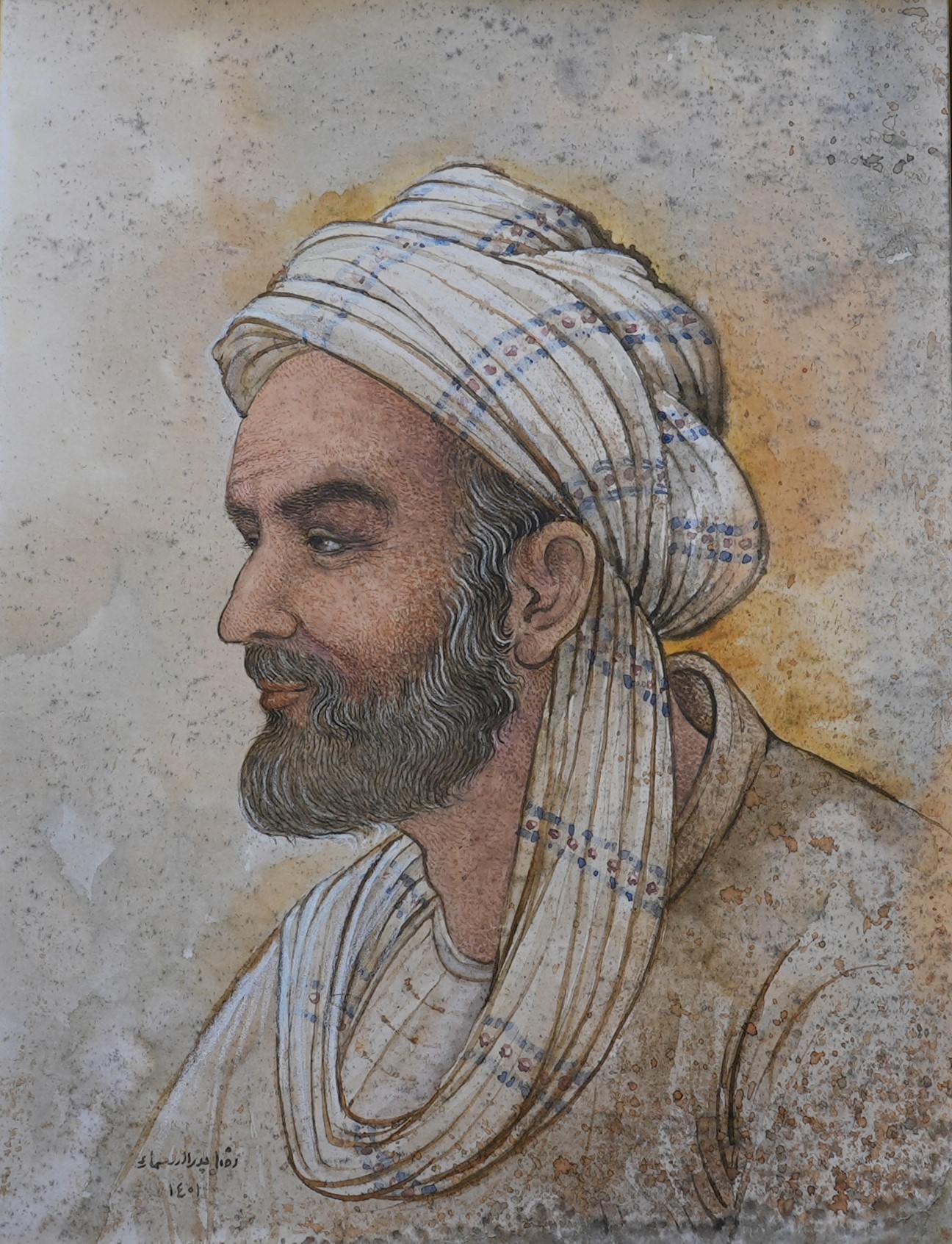“Islamic and pre-Islamic world: history and politics” is a series of academic books launched in 2017. It currently contains fourteen very precious works of Russian academics — a monograph of Dmitriy Mishin “The history of the state of Lakhmids”, works of Mariya Vidyasova “Tunisia. The route to the 21st century”, “Libya. Where is the country of 140 tribes going?”, “Algeria at a crossing of three roads” and “Egypt: From Nasser to our time”, a collective monograph “Spaces and meanings. Memorable chapters of the Arab world history”, “Bayt Al-Hikma. The history of academy of sciences in the East” by S.A.Siyahpush, collection of articles “Iran in the context of new geopolitical realities (for the 40th anniversary of the Islamic revolution)”, the book of Amir Sadeghi Neshat “The constitutional system of the Islamic Republic of Iran”, the book of Seyed Ali Mujani “The Chronicles of Najd. The rule of Muhammad ibn Abd al-Wahhab and the establishment of the Saud dynasty in Najd and Hijaz according to the Ottoman archive documents”, “Ta’rikh Miskindzha: a Dagestani Historical Writing” by A.R. Shikhsaidov, Z.Sh. Zakariayev, A.R. Navruzov and “The Bulgarian Chronicles, or Approaching [‘Ali] Gari” by Muhammad-‘Ali Chukuri and ‘Arifullah Basaravi, the monograph “Historical sketches of the Anglo-Iranian war of 1856-1857” by B.V. Norik and the work “A Road to Kerbela” by Golamhossein Zargarinejad.
“The history of the state of the Lakhmids” represents an attempt to reconstruct the political history of the Lakhmid state, which existed from the second half of the 3rd century until the early 7th century in the south-west of the contemporary Iran. The book was published in 2017 with the support of the Institute of Oriental Studies of the Russian Academy of Science.
“Tunisia. The route to the 21st century” is a seminal work describing the history of this country from the beginning of the 20th century to date. The book was published in 2018 in cooperation with the Institute of Oriental Studies of the Russian Academy of Science and the Institute of Asian and African Studies of the Lomonosov Moscow State University. Two more books are expected to be published in this series.
“Bayt Al-Hikma. The history of academy of sciences in the East” is dedicated to the history of the House of Wisdom in Baghdad (Bayt Al-Hikma) and a number of similar institutions existing in the Muslim East that could be considered as prototypes of contemporary academies.
“Libya. Where is the country of 140 tribes going?” by M.F. Vidyasova presents a concise review of the history of the ancient and contemporary Libya, its conquest by the Ottoman Empire and later by Italy. It covers different stages of the country’s existence as an independent state. The main focus is placed on the civil war, which broke out in 2011, and the role of the Western European countries in this never-ending conflict.
“Spaces and meanings. Memorable chapters of the Arab world history” is a collective monograph edited by V.A. Kuznetsov, D.E. Mishin, V.V. Orlov. This monograph contains a number of significant yet underexamined incidents of the centuries-long history of the Arab East. The book was published based on the results of the Ibn Sina publishing grant contest (project No: 2018.01.10).
“Iran in the context of new geopolitical realities (for the 40th anniversary of the Islamic revolution)” is the collection of articles, which was compiled and edited by Ye. V. Dumayeva, candidate of historical sciences, and was published with the support of the Ibn Sina Foundation in cooperation with the RAS Institute of Oriental Studies. The focus is placed on the ideological justification of a new Islamic state model based on the “velayet-e fakih” principle and its practical implementation. The work presents an analysis of the results of social, political, economic and cultural development of Iran, its major concepts of foreign policy and the evolution of the Russian-Iranian relationships. The work also suggests possible scenarios for the development of the Islamic Republic of Iran.
“The constitutional system of the Islamic Republic of Iran” is the book of the famous Iranian political expert Amir Sadeghi Neshat. It contains a theoretical description of the political order of the Islamic Republic of Iran. The author presents a concise characteristics of the foundational principles of the new model of an Islamic state based on the “velayat-e fakih” principle and demonstrates that it emphasizes its unique character and difference from all other contemporary political systems.
The book “Algeria at a crossing of three roads” provides a concise overview of the history of the ancient and medieval Algeria, its conquest by the Ottoman Empire and later by France. It describes different stages of the country’s evolution as an independent state, with a focus on the civil war of 1992-1999 and the causes of the Algerian leaders’ negative attitude towards the “Arab Spring”. The work is meant for those interested in political sciences, history and especially oriental studies, as well as general readers willing to know more about the events happening in the North Africa.
The book “The Chronicles of Najd. The rule of Muhammad ibn Abd al-Wahhab and the establishment of the Saud dynasty in Najd and Hijaz according to the Ottoman archive documents” examines the history of the emergence and functioning of the state of Muhammad ibn Saud in Najd in the late 18th-early 19th centuries.
The book “Egypt: From Nasser to our time” provides a brief overview of the history of Egypt in the 2nd half of the 20th century and the beginning of the 21st century. The emphasis is placed on the issue of totalitarianism (relations between the authorities and the opposition) and the movement of “political Islam”.
“Ta’rikh Miskindzha: a Dagestani Historical Writing” is a valuable historical source and an important written cultural artefact of the peoples of Dagestan. The book contains the Russian translation of Ta’rikh Miskindja accompanied by historical and linguistic commentaries.
Historiographical work “The Bulgarian Chronicles” written in the Ural-Volga version of the Turkic language allows the readers to see the world through the eyes of the Russian imam who lived more than a century ago and to witness the colourful diversity of the Russian Muslim community of the 19th century.
The monograph “Historical sketches of the Anglo-Iranian war of 1856-1857” is intended to restore the balance and demonstrate what was happening in the Persian Gulf region, far from the place of the unfolding political events that led to this war.
The work “A Road to Kerbela” is a research work on the events of Kerbela and the murder of Prophet Muhammad’s grandson Imam Husain and his companions. The Iranian author Golamhossein Zargarinejad investigates the reasons and the history of this uprising based on a huge variety of documental, religious, literature and other sources.



